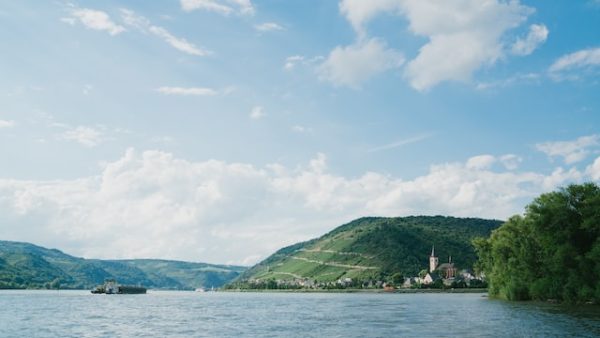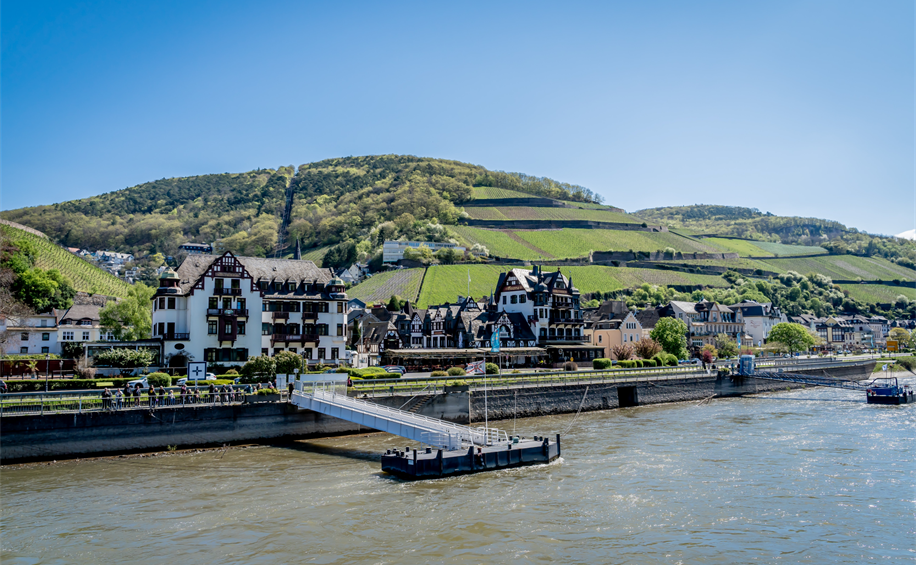Traveling outside of the country poses great privileges and special challenges for Americans, given the influence that the U.S. has over the global economic and political order. It comes with responsibilities, which all Americans should take seriously but, unfortunately, many don’t.
The Maritimes
In the summer of 2003, I took a bicycle trip to the stunningly beautiful Canadian Maritime provinces. I drove to Saint John, New Brunswick, left my car in the parking lot, and took the ferry across the (incredible) Bay of Fundy to Nova Scotia, and spent a couple of weeks riding around several of the provinces.

Bay of Fundy, New Brunswick. Image by Peter Lloyd on Unsplash.
Canadians, in general, are very polite to bicyclists, in that they give you plenty of space and won’t run you off the road, which isn’t the case everywhere. I prefer bicycle touring to other modes of transportation for many reasons, but one important one is the openness and vulnerability that it generates. People often want to talk to you, ask you where you’re from and where you’re headed, inquire about the bike and the distances. The possibilities of chance encounters with a wide variety of people is high while bicycle touring, something which I welcome.
One afternoon on this trip, I came to a road construction site. I made my way to front of the line because you can do that on a bike. The worker directing traffic asked me where I was from. When I said the U.S., he asked, “Why did you invade Iraq?” In April of that year, George Bush had begun an Iraqi invasion under a highly dubious pretext and with what would turn out to be disastrous consequences.
I told him that I didn’t support the war, and that I’d gone to Washington, D.C., to demonstrate against it. It turned out to be a pleasant enough conversation, but I was little taken aback that a construction worker would confront me about an issue of American foreign policy.
A couple of days later, I was in my bicycle shorts having breakfast in a small café before the start of the day. Three women at the next table asked me where I was from. When I said the U.S., they also started in about the Iraq invasion, how unnecessary and terrible it was. Again, I explained that I was against it, and that I’d had done what little I could to try to prevent it. They didn’t seem completely convinced. They wanted to chastise an American, perhaps George Bush, but he wasn’t available, so I was a convenient target. I was sympathetic to the impulse.
The Rhine
In the summer of 2017, I was cycling the Rhine River, which brought me through several European countries: Switzerland, France, Germany, and Holland. At one small town in Germany, I found a small, relatively inexpensive hotel to spend the night in. The proprietor wanted to talk, so I spent some time with him before checking into my room. He turned out to be an émigré from Egypt who had lived in Germany for many years.

Rhine River, Germany. Photo by Phillip Glickman on Unsplash.
What he really wanted to talk about, however, was Donald Trump, who had just taken office. “What’s going on in the U.S.?” he wanted to know. “How could you elect someone like that?” I didn’t have a good explanation at that point and I’m not sure that I do now. I told him I didn’t vote for Trump, didn’t support him, and thought his election was an unmitigated disaster.
I had other encounters on that trip, which need not be detailed here, with other Europeans who also wanted to know about Trump. As an American, I seemed like a good person to provide answers, answers which I didn’t have, for a responsibility that I didn’t feel was my own in any direct way, but for which I bore some responsibility merely by the fact of my American citizenship.
The Seine
In Fall 2021, I was cycling in France, first along the Seine River and then across Normandy. At a small Ibis hotel near Giverny, I was ordering dinner at the hotel restaurant, when an Irish guy in a wheelchair was seated at the next table. When he heard me talking to the waiter, he asked if I was American. When I said that I was, he wanted to talk.

La Reserve in Giverny, Normandy. Photo by JR P on Flickr.
We talked for at least an hour through our respective dinners. We covered many topics, including the travails of traveling internationally in a wheelchair. But what he mostly wanted to discuss was politics. He said he really liked Americans and the U.S., in general, and had spent time in New York. But, the four years of Donald Trump, he just couldn’t understand the phenomena. He believed it signaled something very wrong with the U.S., and he was worried. I told him I was as well. He was more sympathetic than critical, but I felt that, I, as an American, was, in some indefinite way, culpable for all the current craziness of the country of my birth and upbringing.
I didn’t travel abroad last summer in the summer of 2022, but can imagine the questions I’d have received if I had: Is American democracy in peril? Who was that guy in the animal skin? Will Donald Trump be convicted? What the hell is Q? How many guns do you own?
Paris
A few weeks ago, I was in Paris. My brother had rented an apartment and invited me to spend the holidays with him and his family. I love Paris, and it was a generally wonderful time. One evening, out for an aimless stroll, I came across a small group of people with a large Ukrainian flag. It was obviously some kind of action supporting Ukraine.

Eiffel Tower in Paris. Photo by Anthony DELANOIX on Unsplash.
I asked one guy carrying a bunch of small Ukrainian flags if he was Ukrainian. When he said that he was, I told him that I wanted him to know that I supported Ukraine. He asked me where I was from. I told him the U.S. He looked at me, and then he gave me a hug. “USA!” he said, “Thanks so much for everything you are doing for Ukraine.” He asked me if I wanted to buy a flag. “How much?” I asked. “Two euros.” “Is the money going to Ukraine?” “Yes,” he said. I found a ten in my wallet and told him to keep it. It seemed like the least I could do.
I then met my brother and his family for dinner at a small French restaurant. I told them about my encounter with the Ukrainian demo. We took the flag and propped it up in the middle of the table. As Americans in a foreign country, it seemed like an appropriate gesture, and the very least we could do.
Thomas Shevory is Emeritus Professor of Politics at Ithaca College, where he taught for more than thirty years. He is the author of eight books and numerous articles on public law and policy, with an emphasis on health and environmental issues. His most recent book is “Toxic Lake: Environmental Destruction and the Epic Battle to Save Onondaga Lake” (forthcoming, Fall 2023, NYU Press). He is former codirector of the Finger Lakes Environmental Film Festival.
Header image of Rüdesheim am Rhein, Germany, by Tamal Mukhopadhyay on Unsplash.

